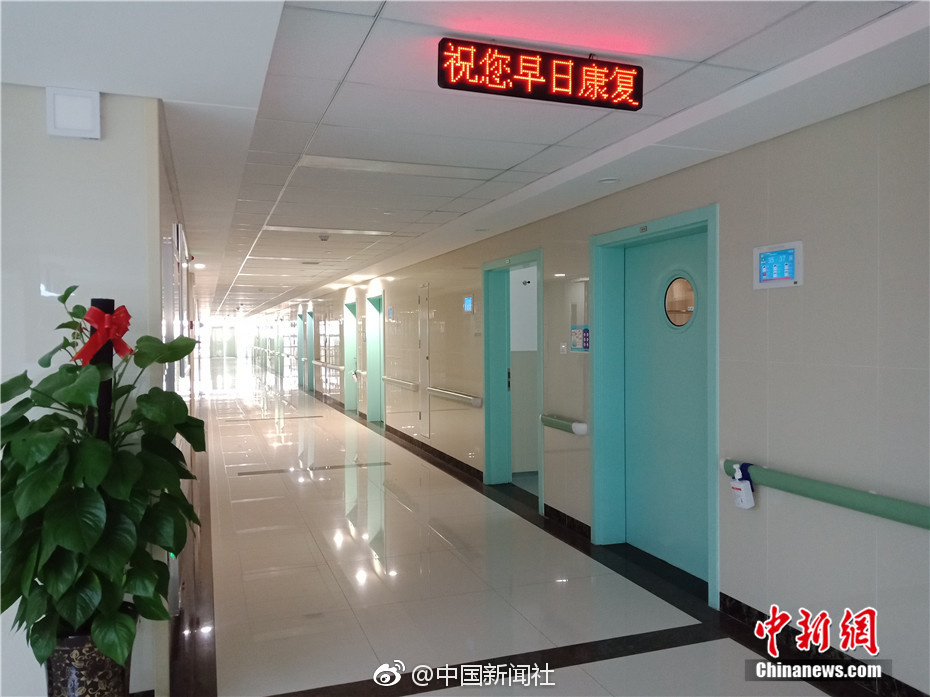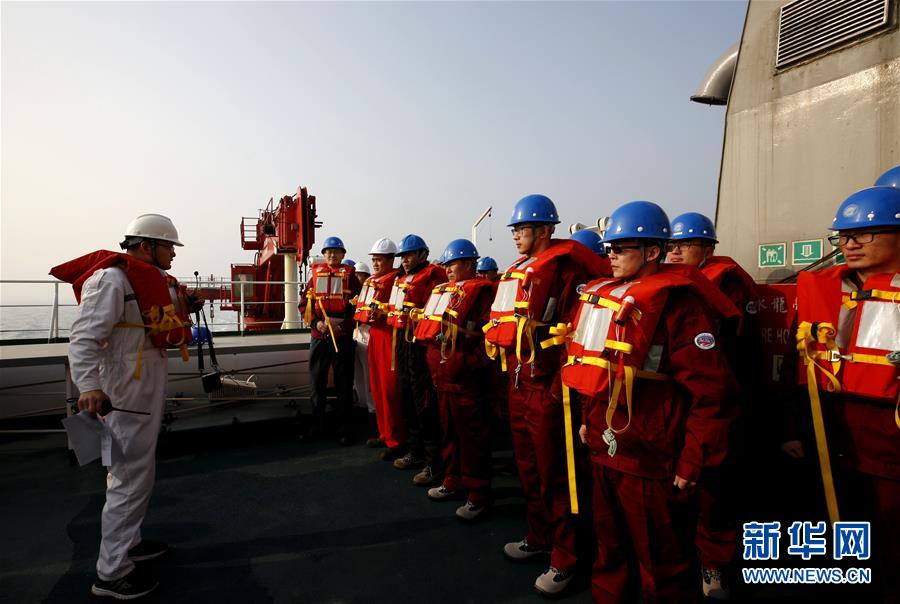
1. The five functions of the operating system are processor management, memory management, device management, file management and job management. Processor management The most basic function of processor management is to process interrupt events. After configuring the operating system, various events can be processed.
2. The main function of the computer operating system is process management, and its work is mainly process scheduling. In the case of a single user and a single taskNext, the processor is only monopolized by one user's task, and the process management work is very simple.
3. Operating System (abbreviation: OS) is a group of interrelated system software programs that supervise and control computer operation, use and run hardware, software resources and provide public services to organize user interaction.
4. Five major management functions of the operating system: (1) Job management: including tasks, interface management, human-computer interaction, graphical interface, voice control and virtual reality, etc. ( 2) File management: also known as information management. ( 3) Storage management: The essence is the management of storage "space", which mainly refers to the management of the main memory.
Any information system has five basic functions, namely: information collection and recording (input); information storage; information processing; information transmission; information output .
According to the functional introduction of the information system, the information system has five basic functions: input, storage, processing, output and control. Different functions have different functions, such as input function: the input function of the information system is determined by the purpose to be achieved by the system, the ability of the system and the permission of the information environment.
Five basic functions of the information system: input, storage, processing, output and control. Input function: The input function of the information system is determined by the purpose to be achieved by the system, the ability of the system and the permission of the information environment.Storage function: Storage function refers to the ability of the system to store various information and data. Mainly including: statistical functions.
The operating system has five functions: processor management: mainly controls and manages the work of the CPU. Storage management: mainly allocate and manage memory. Device management: mainly manage basic input and output devices. File management: responsible for the organization, storage, operation and protection of computer files.
The functions of the computer operating system include: processor management, memory management, device management, file management, job management and other functional modules. Processor management. The most basic function of processor management is to handle interrupt events. The processor can only detect interrupt events and generate interrupts and cannot process them.
The main function of the computer operating system is process management, and its main work is process scheduling. In the case of a single user and a single task, the processor is only monopolized by one user's task, and the work of process management is very simple.
The main functions of the operating system are process and processor management, job management, storage management, device management and file management, as follows: process and processor management. Because the execution of the program must rely on the processor, only one program flow can be processed and executed at any time. Homework management.
I) Processor management The most basic function of processor management is to handle interrupt events. The processor can only detect interrupt events and generate interrupts, and cannot handle these interrupt events. After configuring the operating system, all types of events can be handled.Another function of processor management is processor scheduling.
Five management functions of the operating system: job management: including tasks, interface management, human-computer interaction, graphical interface, voice control and virtual reality, etc. File management: also known as information management. Storage management: The essence is the management of storage "space", which mainly refers to the management of the main memory.

The storage management function of the operating system is to manage memory resources. It mainly realizes memory allocation and recovery, storage protection and memory expansion. The device management of the device management operating system is responsible for allocating and recycling external devices, and controlling external devices to operate according to the requirements of user programs.
The functions of the computer operating system include: processor management, memory management, device management, file management, job management and other functional modules. Processor management. The most basic function of processor management is to handle interrupt events. The processor can only detect interrupt events and generate interrupts and cannot process them.
The five functions of the operating system are processor management, memory management, device management, file management and job management.Processor management The most basic function of processor management is to process interrupt events. After configuring the operating system, various events can be processed.
DigiPlus-APP, download it now, new users will receive a novice gift pack.
1. The five functions of the operating system are processor management, memory management, device management, file management and job management. Processor management The most basic function of processor management is to process interrupt events. After configuring the operating system, various events can be processed.
2. The main function of the computer operating system is process management, and its work is mainly process scheduling. In the case of a single user and a single taskNext, the processor is only monopolized by one user's task, and the process management work is very simple.
3. Operating System (abbreviation: OS) is a group of interrelated system software programs that supervise and control computer operation, use and run hardware, software resources and provide public services to organize user interaction.
4. Five major management functions of the operating system: (1) Job management: including tasks, interface management, human-computer interaction, graphical interface, voice control and virtual reality, etc. ( 2) File management: also known as information management. ( 3) Storage management: The essence is the management of storage "space", which mainly refers to the management of the main memory.
Any information system has five basic functions, namely: information collection and recording (input); information storage; information processing; information transmission; information output .
According to the functional introduction of the information system, the information system has five basic functions: input, storage, processing, output and control. Different functions have different functions, such as input function: the input function of the information system is determined by the purpose to be achieved by the system, the ability of the system and the permission of the information environment.
Five basic functions of the information system: input, storage, processing, output and control. Input function: The input function of the information system is determined by the purpose to be achieved by the system, the ability of the system and the permission of the information environment.Storage function: Storage function refers to the ability of the system to store various information and data. Mainly including: statistical functions.
The operating system has five functions: processor management: mainly controls and manages the work of the CPU. Storage management: mainly allocate and manage memory. Device management: mainly manage basic input and output devices. File management: responsible for the organization, storage, operation and protection of computer files.
The functions of the computer operating system include: processor management, memory management, device management, file management, job management and other functional modules. Processor management. The most basic function of processor management is to handle interrupt events. The processor can only detect interrupt events and generate interrupts and cannot process them.
The main function of the computer operating system is process management, and its main work is process scheduling. In the case of a single user and a single task, the processor is only monopolized by one user's task, and the work of process management is very simple.
The main functions of the operating system are process and processor management, job management, storage management, device management and file management, as follows: process and processor management. Because the execution of the program must rely on the processor, only one program flow can be processed and executed at any time. Homework management.
I) Processor management The most basic function of processor management is to handle interrupt events. The processor can only detect interrupt events and generate interrupts, and cannot handle these interrupt events. After configuring the operating system, all types of events can be handled.Another function of processor management is processor scheduling.
Five management functions of the operating system: job management: including tasks, interface management, human-computer interaction, graphical interface, voice control and virtual reality, etc. File management: also known as information management. Storage management: The essence is the management of storage "space", which mainly refers to the management of the main memory.

The storage management function of the operating system is to manage memory resources. It mainly realizes memory allocation and recovery, storage protection and memory expansion. The device management of the device management operating system is responsible for allocating and recycling external devices, and controlling external devices to operate according to the requirements of user programs.
The functions of the computer operating system include: processor management, memory management, device management, file management, job management and other functional modules. Processor management. The most basic function of processor management is to handle interrupt events. The processor can only detect interrupt events and generate interrupts and cannot process them.
The five functions of the operating system are processor management, memory management, device management, file management and job management.Processor management The most basic function of processor management is to process interrupt events. After configuring the operating system, various events can be processed.
100 free bonus casino no deposit GCash
author: 2025-02-05 21:52 DigiPlus Philippine
DigiPlus Philippine
761.16MB
Check Hearthstone Arena Tier List
Hearthstone Arena Tier List
522.32MB
Check PAGCOR online casino free 100
PAGCOR online casino free 100
728.29MB
Check UEFA live free
UEFA live free
496.76MB
Check LR stock price Philippines
LR stock price Philippines
234.37MB
Check Champions League
Champions League
461.73MB
Check Hearthstone arena class win rates reddit
Hearthstone arena class win rates reddit
537.26MB
Check Champions League
Champions League
164.68MB
Check Hearthstone Arena win rate
Hearthstone Arena win rate
177.76MB
Check App to watch Champions League live free
App to watch Champions League live free
779.78MB
Check UEFA Champions League live streaming app
UEFA Champions League live streaming app
854.34MB
Check TNT Sports
TNT Sports
897.85MB
Check Walletinvestor digi plus
Walletinvestor digi plus
379.69MB
Check Casino Plus free 100
Casino Plus free 100
997.39MB
Check DigiPlus stock
DigiPlus stock
337.61MB
Check Champions League
Champions League
632.74MB
Check Hearthstone Wild Decks
Hearthstone Wild Decks
744.56MB
Check Hearthstone deck
Hearthstone deck
848.17MB
Check Casino Plus free 100
Casino Plus free 100
279.86MB
Check Hearthstone arena
Hearthstone arena
773.65MB
Check Casino free 100 no deposit
Casino free 100 no deposit
142.31MB
Check Casino Plus login register
Casino Plus login register
384.95MB
Check UEFA Champions League standings
UEFA Champions League standings
541.91MB
Check 100 free bonus casino no deposit GCash
100 free bonus casino no deposit GCash
973.45MB
Check Casino Plus login register
Casino Plus login register
873.55MB
Check Hearthstone arena class win rates reddit
Hearthstone arena class win rates reddit
744.43MB
Check Free sports events uefa champions league app android
Free sports events uefa champions league app android
497.83MB
Check Casino redeem
Casino redeem
634.32MB
Check Hearthstone Arena class tier list 2024
Hearthstone Arena class tier list 2024
587.33MB
Check Casino Plus
Casino Plus
796.27MB
Check Hearthstone deck
Hearthstone deck
384.83MB
Check Walletinvestor digi plus
Walletinvestor digi plus
534.11MB
Check LR stock price Philippines
LR stock price Philippines
177.27MB
Check Walletinvestor digi plus
Walletinvestor digi plus
299.71MB
Check UEFA Europa League
UEFA Europa League
787.96MB
Check Hearthstone Arena win rate
Hearthstone Arena win rate
911.67MB
Check
Scan to install
DigiPlus to discover more
Netizen comments More
1096 UEFA Champions League live
2025-02-05 22:25 recommend
917 DigiPlus stock
2025-02-05 22:13 recommend
1436 Arena plus APK
2025-02-05 21:44 recommend
1228 Europa League app
2025-02-05 21:22 recommend
1102 Hearthstone arena class win rates reddit
2025-02-05 20:27 recommend